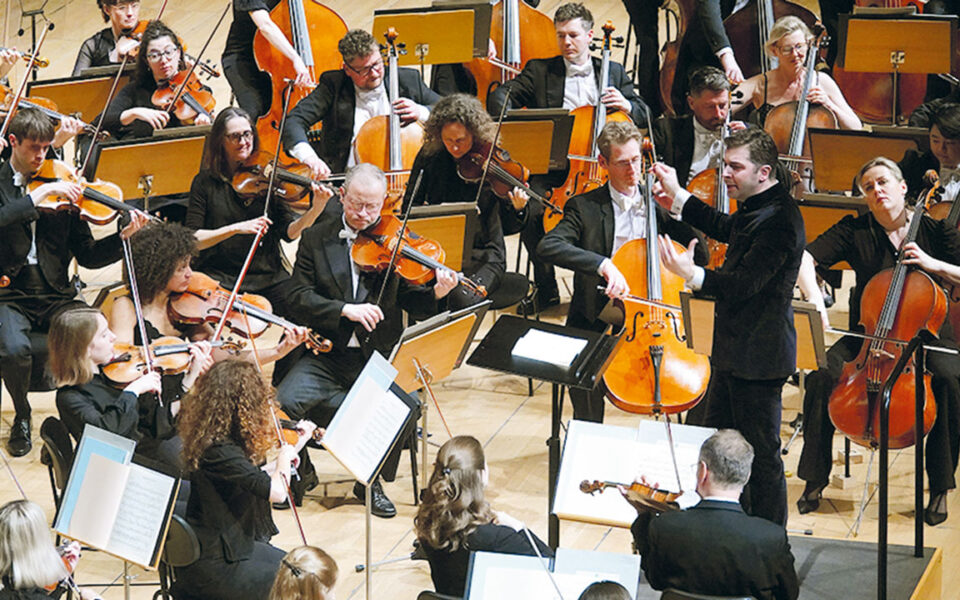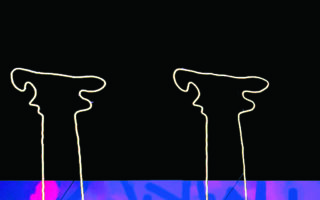Conductor Grammenos’ impromptu performance saves the evening
Young conductor Dionysis Grammenos takes the baton for Brahms’ Fourth Symphony after the sudden illness of conductor Karina Canellakis.

On Friday night, we waited in the packed Christos Lambrakis Hall for conductor Karina Canellakis to take the stage to conduct the London Philharmonic in a much-anticipated concert. The president of Greece, Katerina Sakellaropoulou, was also present in the main box.
But instead of the renowned Greek-American conductor, and while the musicians waited in their seats, Janis Vakarelis, the artistic director of the Megaron – as the Athens Concert Hall is known – appeared on stage with a momentous announcement: Canellakis’ sudden illness would unfortunately prevent her from performing.
The news was followed by an exclamation of disappointment from the audience. For a brief moment, we wondered if we should leave as we had arrived. The prelude from Modest Mussorgsky’s opera “Khovanshchina,” which was to open the concert, was not to be played at all; Dmitri Shostakovich’s Violin and Orchestra Concerto No 1 was to be performed by solo violinist Christian Tetzlaff, who now also took on the role of conductor.
And what about Brahms’ Symphony No 4, which was to be the second part of the evening? The musical direction would fall to the young Greek conductor Dionysis Grammenos.
At the mention of Grammenos’ name, the audience, which up to that moment had expressed a certain nervousness, broke into a very warm, spontaneous applause.
I did not know whether it was a collective gesture of courtesy and moral support of the audience for the young conductor or a gesture of approval of the specific choice made by the Megaron management.
Grammenos himself, however, tried to convince us that it must have been the latter. As it turned out, the evening of February 23, which at first seemed to be turning into a fiasco, turned out to be just the opposite.
OK, the performance of the Shostakovich concerto was excellent, by a gifted violinist and a large orchestra, except that the ensemble and soloists had already been tested in rehearsals. The conductor was missing, of course, and we were not fortunate enough to hear her style, but judging by the result, we felt that a serious void had been deservedly filled.
In the second half, however, the concert took off with Grammenos on the podium. And we stress this because, as we were later informed, Grammenos found out that he would be replacing the internationally renowned Greek-American conductor suddenly on Friday afternoon, with zero rehearsals with the London Philharmonic.
At the finale, the packed Christos Lambrakis Hall shook with applause and cheers. In another case, we would have had an encore, but having not rehearsed a short composition beforehand, Grammenos and the London Philharmonic left after some back and forth thanks to the prolonged applause (e.g. at the end of the first movement, Tetzlaff gave a unique, unscheduled performance of Bach’s Chaconne for Solo Violin).
We left the Megaron with a feeling of gratitude, both for the Greek conductor and for us who were there. The next day, we were informed that the musicians of the London Philharmonic were also so delighted with Grammenos’ conducting that their representative requested that they work together again as soon as possible.





